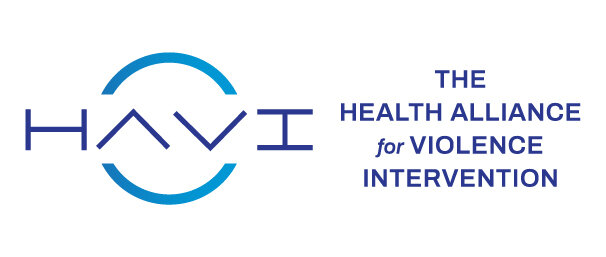The HAVI Applauds Introduction of Bipartisan Solution to Cyclical Violence Act in U.S. Senate
May 5, 2023 — Yesterday Senators Ben Cardin (D-Md.) and Roger Marshall (R-Kan.) introduced the Bipartisan Solution to Cyclical Violence Act of 2023, which provides federal funding to expand and research hospital-based violence intervention programs (HVIPs). These programs connect highly trained staff with victims of community violence while they’re in the hospital recovering from their injuries to provide comprehensive case management services and ensure both the patient’s immediate safety following hospital discharge and their long-term well-being.
“The HAVI applauds the introduction of this important legislation, which will provide much-needed funding to trauma centers to expand and research HVIPs,” said Fatimah Loren Dreier, Executive Director of the Health Alliance for Violence Intervention (the HAVI), a national organization that fosters a growing network of hospital-based violence intervention programs (HVIPs). “HVIPs help to break the cycle of community violence by providing wraparound services to violently injured patients while they’re recovering from their injuries. They are a key component of a comprehensive community violence intervention ecosystem, which cities deploy to address violence in their hardest hit communities.”
The bipartisan legislation introduced yesterday establishes a federal grant program under the U.S. Department of Health and Human Services to create or expand HVIPs and study the impacts of these programs on re-incarceration and hospital re-admittance rates.
“This legislation is a game-changer. It amplifies the message that violence is a public health crisis and that our people suffering from injuries require a comprehensive approach to care in order to change their life course,” said Rochelle Dicker, MD, who serves as Chair of the HAVI Advisory Board in addition to her professional roles as Vice Chair for Critical Care and Chief of Trauma and Emergency General Surgery at Ronald Reagan UCLA Medical Center in Los Angeles. “Expansion and rigorous study of the value of HVIPs will greatly advance the efforts already being made when trauma centers work hand in hand with our communities.”
The HVIP model centers around violence prevention professionals (VPPs)—highly trained staff who often come from the same communities they serve—who meet with violently injured patients at the hospital bedside and work with them to prevent retaliation and future violent victimization. They also link patients to critical social services, such as trauma-informed mental health care, housing, education, and job training. The goal of these programs is to address both the immediate mental and physical needs of victims of violence as well as the underlying social factors that put them at risk of violence in the first place.
In addition to supporting a network of 50 member HVIPs, the HAVI works in over 85 cities in the U.S. and beyond to provide training and technical assistance for the development of new HVIPs as well as support with strategic communications, policy development, peer learning, and research. The HAVI also works to shift narratives about violence and trauma in communities of color and partners with its members to advance policy and research that address violence as a public health emergency.
Read the full text of the bill.
Media Contact: Andrea Maruniak
